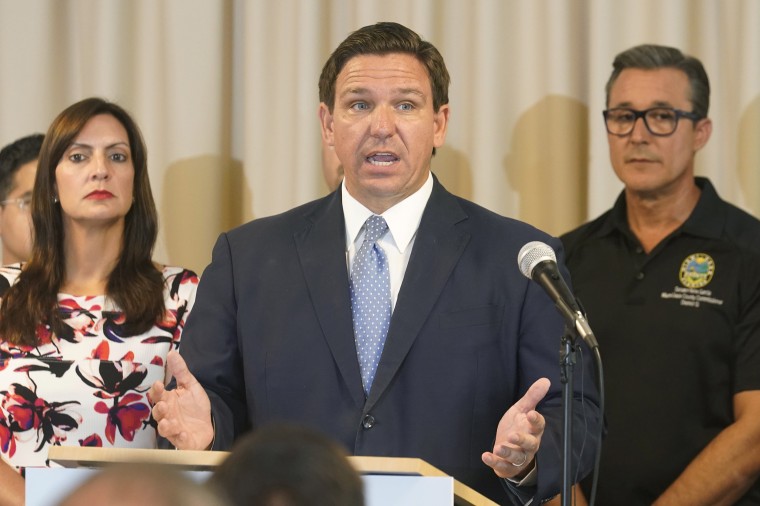Florida Republicans had every reason to be pleased with how Election Day 2020 unfolded. The state's system of elections worked exactly as intended, and GOP candidates excelled in the Sunshine State up and down the ballot.
That, however, was not good enough. As Republicans nationwide embraced Donald Trump's Big Lie, and GOP officials sought ways to place new hurdles between voters and their democracy, Florida Republicans approved a series of new voter-suppression measures in the spring.
But for the right, that wasn't good enough either. Politico reported last month GOP officials in the state were "under mounting pressure" from their own allies to conduct a "forensic audit" of the 2020 elections — despite the fact that Republicans had a very good year in the state.
Roger Stone has even threatened to run against Republican Gov. Ron DeSantis next year because, as far as the former Trump advisor and pardoned felon is concerned, the governor isn't addressing the "phantom voters" conspiracy theory.
And so, DeSantis appears ready to follow, not lead. The Tampa Bay Times reported this week:
Six months after signing what he called the strongest election security bill in the nation, Gov. Ron DeSantis on Wednesday said he wanted to beef up the state's voting laws and create a new office to investigate and prosecute election-related fraud.... "We're going to do another package of election integrity reforms that is going to make Florida way No. 1 by a long shot anywhere in the country," DeSantis said.
Remember, there were no problems with Florida's elections, which produced results Republicans liked. The party nevertheless made it more difficult for Floridians to cast ballots in future elections.
The right said that wasn't good enough, and so the governor is prepared to try again to satisfy his own party's election opponents.
Time will tell exactly what the next round of voter-suppression measures might include, but DeSantis suggested dead Floridians received ballots — a claim unsupported by evidence — and added that he doesn't believe ballot drop-boxes should exist anywhere in the state.
The governor also announced plans for a state law enforcement office that would be dedicated specifically to election-related crimes, none of which appear to exist in any meaningful numbers.
At face value, it's pitiful to see DeSantis scramble this way, exploring new ways to undermine the franchise because conservative activists want him to. But there's also a degree of irony to the circumstances.
Remember this Associated Press story from the summer?
A sham candidate for the Florida Legislature pleaded guilty Tuesday to being part of a vote siphoning scheme in last year's election and will testify against a former Republican state senator who prosecutors say ran it. Alex Rodríguez agreed to testify against former Sen. Frank Artiles after pleading guilty in Miami-Dade County to accepting illegal campaign donations and lying on campaign documents. He will receive three years probation if he cooperates, including a year of house arrest. He had faced a possible 20-year prison sentence.
According to prosecutors, the former Republican state senator secretly paid Rodriguez to run a third-party campaign against a Democratic incumbent with the same last name. The point was to confuse voters, and it worked: The auto parts salesman with no political experience received 6,000 votes, in a race the Republican challenger won by 32 votes.
The Florida Commission on Ethics recently sent the case to the governor for further action. DeSantis, clearly concerned about "election integrity," must be eager to address this Republican scheme, right?
Wrong. The Miami Herald reported yesterday that the governor's office "has not had a chance to review" the matter.

